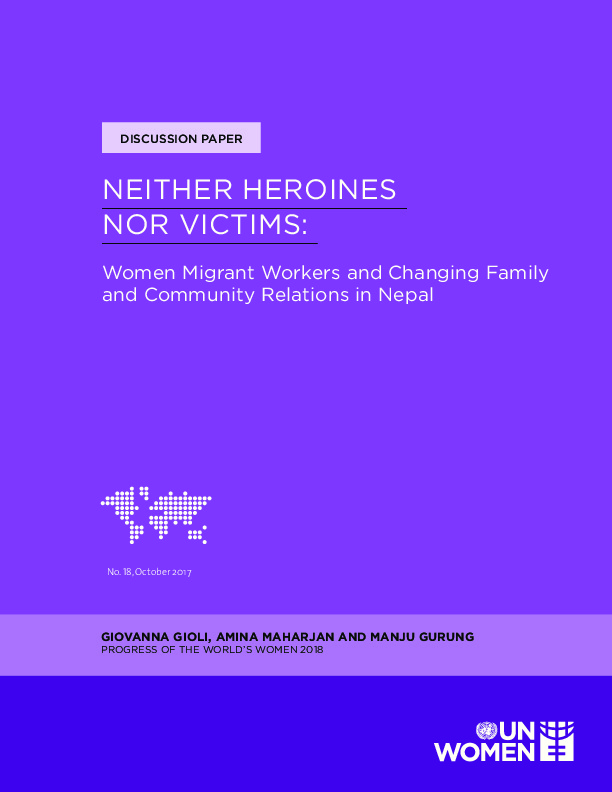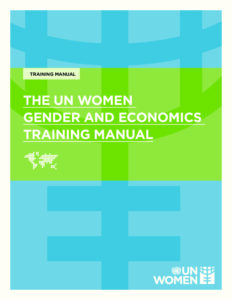Description
Pourakhi, an organization established by women returnees in 2003, has collected more than 1,700 case studies on returnee women migrant workers in Nepal. This paper delves into 307 of these, as well as a consultation with 14 returnee migrant women from 14 districts, to better understand the reintegration process. Rather than focusing on a (necessary) critique of labour markets and on the high human, social and financial costs of migration, this study aims at giving voice to the subjectivities of migrant women in Nepal, as less attention has been paid to this aspect. It unpacks their reasons for undertaking international migration and their struggle for capability to secure a livelihood in the context of globalization.
Creator
Giovanna Gioli, Amina Maharjan, Manju Gurung
Source
Publisher
United Nations Entity for Gender Equality and the Empowerment of Women (UN Women)
Date
2017
Language
English
URL
Citation
Giovanna Gioli, Amina Maharjan, Manju Gurung, “Neither heroines nor victims: Women migrant workers and changing family and community relations in Nepal,”


